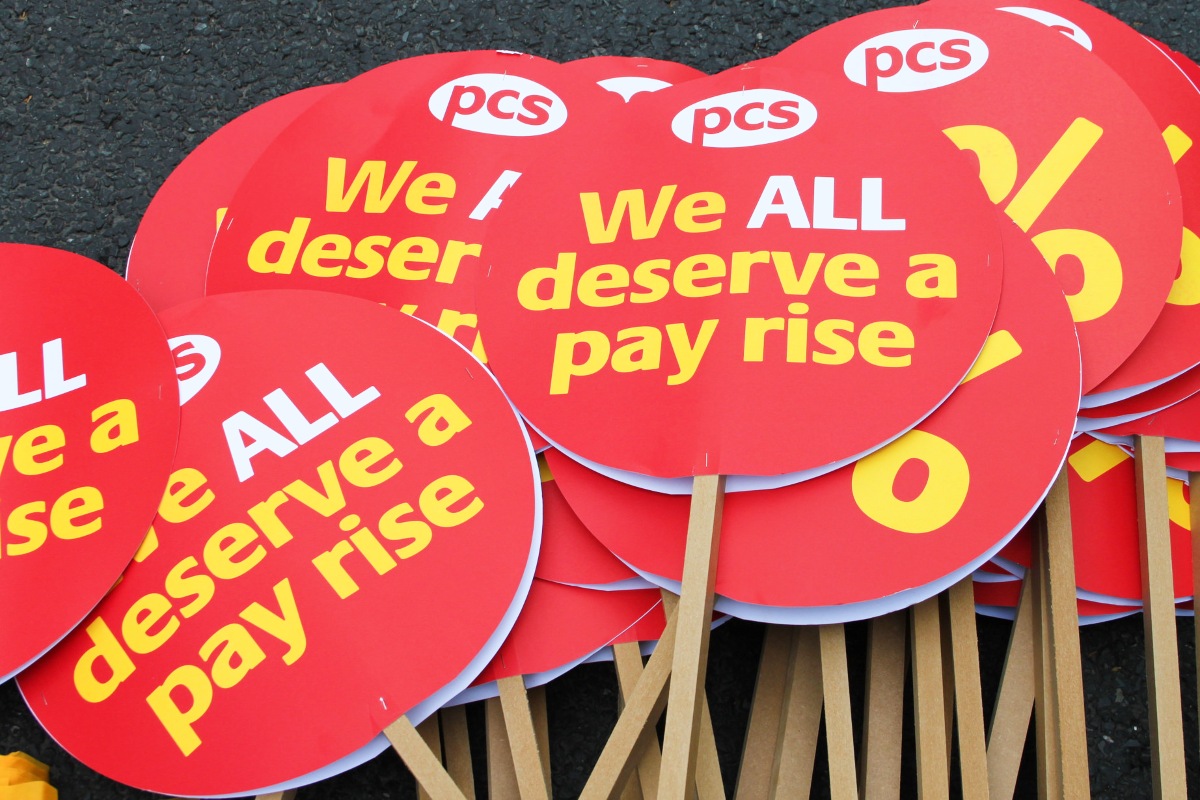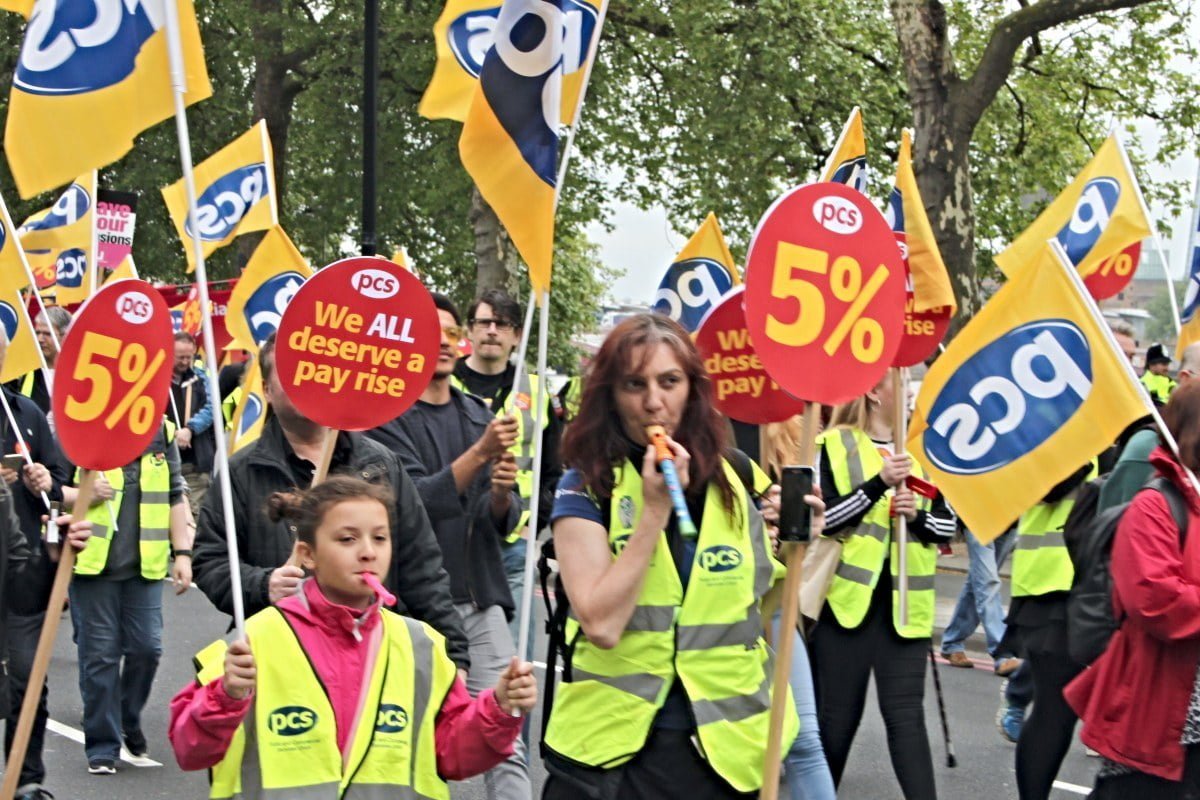The contest for assistant general secretary of PCS, the civil servants’ union, provides important lessons in the dangers of sectarianism and putting individual prestige before the interests of trade union members.
The upcoming election in the Public and Commercial Services union (PCS) for the post of assistant general secretary (AGS) is of considerable significance, not just in terms of who will be elected but what they represent. The result will be a major factor in the future direction of the union and the left itself.
The past year has seen an intense dispute within Left Unity (LU), the socialist rank-and-file grouping within PCS, which has been the cornerstone of the Democracy Alliance left leadership that has held power for the past twenty years. The union is rightly seen as a “beacon of resistance” against the austerity, cuts and privatisation agendas of various governments throughout that period.
Division
 The incumbent, Chris Baugh, was challenged for the LU candidature by Janice Godrich, PCS union president. Janice is regarded as one of – if not the – most outstanding rank-and-file socialist trade union women activists of this generation.
The incumbent, Chris Baugh, was challenged for the LU candidature by Janice Godrich, PCS union president. Janice is regarded as one of – if not the – most outstanding rank-and-file socialist trade union women activists of this generation.
Janice’s challenge arose from Baugh’s consistent behind the scenes undermining of the general secretary, Mark Serwotka, the union’s national leadership, as well as PCS strategy, as democratically decided at conference. In addition, it also arose from Baugh’s conservative and timid approach to industrial and political strategy. This analysis has been strikingly confirmed as the debate developed.
Rather than accept responsibility for his divisive behaviour, the Socialist Party (SP), of which both he and Janice were members, dismissed the strenuous efforts made over many years to resolve this problem.
When this situation could no longer be tolerated, the SP leaders embarked on a scurrilous campaign of evasion, denial and division. They made clear that what Baugh describes as his ‘job’ was far more important than the left unity required in continuing to build PCS into the democratic fighting union needed to deliver for its members.
SP leaders were warned of the consequences of this strategy and the potential for further unnecessary division. In manufacturing false ‘differences’, the Baugh camp demonstrated a damaging and unscrupulous disregard for the left and PCS members.
They outrageously re-wrote the history of the 2010-11 pensions’ dispute, claiming PCS had not done all it could to build effective unity amongst public sector unions. They exacerbated rather than try to resolve issues around the Gender Recognition Act; created false and totally unnecessary division on the national pay campaign and the political strategy; and, through false dog-whistle claims of “bureaucratisation”, sought to stoke up antagonism between lay and full-time officials.
The SP even abandoned core demands, such as that all elected full-time officials should take a “workers’ wage” – something Baugh, on £95,000 per year, never abided by in his fourteen years in post. Unbelievably, this was justified by SP members because “living in London is expensive”.
Factional interests
 Janice won the LU election but was forced to withdraw as LU candidate for AGS due to ill-health. Rather than stand aside in the interests of unity, Chris stood again in the LU re-run against Stella Dennis. Stella lost the nomination by only sixteen votes, despite the fact she had only declared her candidacy on the eve of the election itself.
Janice won the LU election but was forced to withdraw as LU candidate for AGS due to ill-health. Rather than stand aside in the interests of unity, Chris stood again in the LU re-run against Stella Dennis. Stella lost the nomination by only sixteen votes, despite the fact she had only declared her candidacy on the eve of the election itself.
Baugh’s decision to press on with this toxic candidacy deepened the political divisions in LU, which were only widened by his divisive behaviour over the union’s national pay campaign. For many on the left this has ruled out any support for him.
With a weak and divided Tory government, members have the best chance in years to achieve PCS’ key demand for national pay bargaining.
During the LU re-run Baugh decided, for his own factional and electoral interests, to call for a disaggregated ballot with a host of additional terms and conditions attached. He knew full well that this did not constitute a legitimate national campaign, legally or industrially.
By creating false divisions over the pay campaign, he cynically reflected not just his own lack of confidence in the members ability to win on pay, but also that of the more conservative layers of ‘left’ activists he had courted throughout his campaign. Following Baugh’s lead, some of his supporters, including SP members, even publicly declared that beating the Tory imposed 50% ballot threshold was “unachievable”.
Final straw
 The pay ballot is now under way. Despite this damaging intervention, confidence is high that the ballot will be won and the 50% threshold surpassed.
The pay ballot is now under way. Despite this damaging intervention, confidence is high that the ballot will be won and the 50% threshold surpassed.
Baugh’s “alternative” would have meant a retreat to separate group campaigns rather than national action – a failed strategy that could never achieve what PCS members need and deserve: national pay bargaining. His divisive actions on pay, while holding the second highest senior elected position in the union, were in breach of NEC and union policy, and were contrary to the socialist principles, policy and rules of LU.
For many LU activists this was the last straw. They will simply not support someone who, for his own factional and electoral interests, manufactured a damaging ‘difference’ on strategy when maximum unity was required to win the national pay campaign. His eventual ‘support’ for the national pay campaign was too little, too late.
LU officially supports Baugh’s candidature since he scraped a victory in the re-run election. But he faces a serious challenge from PCS Scottish Officer, Lynn Henderson. While not a LU member, Lynn – unlike Baugh – fully supports PCS policy and strategy. She also supports the Democracy Alliance slate for the NEC elections, which are being run together with the AGS election
Lynn received the nominations from 39 branches across the union’s departmental groups, an unprecedented level of support for a candidate non-aligned to any grouping. Baugh received 86 nominations, a fall of nearly half from the 168 nominations he received in the last AGS election five years ago. This reflects the fact many LU and other union activists have deep concerns over his lack of confidence in the union’s ability to win for members.
Reject sectarianism
This unwelcome division could have been avoided. But rather than seek a reasonable compromise which would have seen Janice stand as AGS, the SP leaders based their support of Chris on narrow considerations of narrow party prestige, declaring “nobody tells us who our candidate will be”.
This rule or ruin attitude can only be an obstacle to building a principled unity on the left. The divisions which have been sown clearly demonstrate that such sectarian methods are not in the interests of the left or the union members, not just in PCS but in the labour movement generally.






